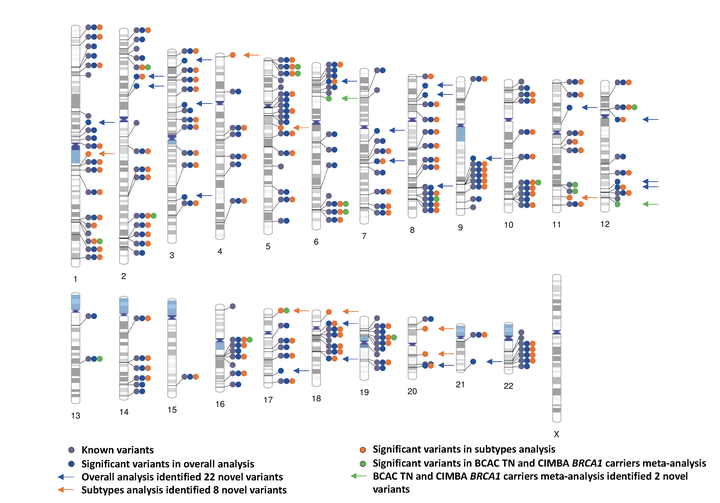Testing for genetic association association and building risk prediction models for cancer incorporating tumor characteristics

Breast cancer represents a heterogeneous group of diseases with different molecular and clinical features. Thus, clarifying potential heterogeneous associations between genes and disease subtypes offers a tremendous opportunity to characterize distinct etiological pathways. During my graduate studies, I proposed several new computational and statistical approaches to develop powerful genetic associations tests and build polygenic risk scores for specific subtypes. This method has 1) discovered 32 novel susceptibility loci associated with breast cancer risk; 2) revealed the complex etiological heterogeneity patterns of 173 known risk loci; and 3) constructed PRS with the best prediction performance for different breast cancer subtypes. This work has led to three first-authored papers:
- Zhang, Haoyu, et al. “Genome-wide association study identifies 32 novel breast cancer susceptibility loci from overall and subtype-specific analyses.” Nature genetics 52.6 (2020): 572-581. (co-first author)
- Zhang, Haoyu, et al. “A mixed-model approach for powerful testing of genetic associations with cancer risk incorporating tumor characteristics.” Biostatistics 22.4 (2020): 772-788.
- Ahearn, Thomas U., et al. “Common breast cancer risk loci predispose to distinct tumor subtypes.” (Accepted at Breast Cancer Research, co-first author)